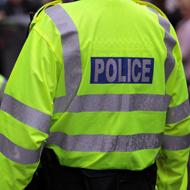Serious case review published on dog attack

The NSCB will seek assurances from Northamptonshire Police that aggressive dogs will be recognised as a potential hazard to children in the home, during training for frontline officers.
The Northampton Safeguarding Children Board (NSCB) has published its serious case review into the death of a six-month-old baby, who was fatally attacked by a pitbull-type dog in her mother's home two years ago.
Molly-Mae Wotherspoon, who is referred to as 'Child Q' in the report, died on 3 October 2014 after one of two dogs in the household broke free from its cage in the kitchen and attacked her while she lay in her moses basket in the lounge. Police arrived at the scene within five minutes but were unable to save her due to the severity of her injuries.
A serious case review was launched in the aftermath of her death to scrutinise the roles of professionals involved with her during her short life.
According to the report, a health visitor became aware there were dogs in the home on one occasion, but showed no curiosity about whether they could be a risk to the child. As a result, NSCB is recommending that midwives and health visitors proactively ask parents about the presence of pets in the home and provide information on dog safety. In order to facilitate this, standardised, up-to-date and evidence-based information - in line with RSPCA guidance for frontline practitioners - should be made available and delivered by health professionals.
The NSCB should also seek assurances from Northamptonshire Police that aggressive dogs will be recognised as a potential hazard to children in the home, during training for frontline officers. Furthermore, the board will urge the College of Policing to include dog safety in the national policing safeguarding training curriculum.
The independent chair of the NSCB was also encouraged to write to the RCVS chief executive, to determine whether it would be feasible or desirable to create a mandatory scheme for members of the college to report dangerous or aggressive dogs to the statutory authorities.
The report concludes that poor practice could be identified among some agencies, but 'nothing suggests that any single professional could, or should, have prevented Child Q's death'.
Molly-Mae's mother, 23, was last month sentenced to two years in prison for owning a dangerously out of control dog, and the child's maternal grandmother, 56, was handed the same sentence for being in charge of a dangerously out of control dog.
A complaint made about the dog in January 2014 is the subject of a report published last month by the Independent Police Complaints Commission, centring on the failure of Northamptonshire Police to act on the RSPCA's concerns about the dog.



 The Veterinary Medicines Directorate (VMD) is inviting applications from veterinary students to attend a one-week extramural studies (EMS) placement in July 2026.
The Veterinary Medicines Directorate (VMD) is inviting applications from veterinary students to attend a one-week extramural studies (EMS) placement in July 2026.